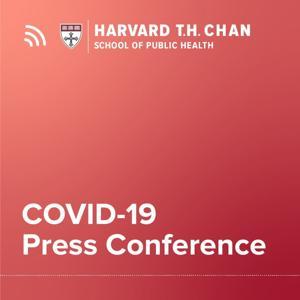Danielle Allen and Mark Fagan say that when tested, thoughtfully deployed, and regulated AI actually can help governments serve citizens better. Sure, there is no shortage of horror stories these days about the intersection of AI and government—from a municipal chatbot that told restaurant owners it was OK to serve food that had been gnawed by rodents to artificial intelligence police tools that misidentify suspects through faulty facial recognition. And now the Trump administration and Elon Musk’s so-called Department of Government Efficiency or DOGE say they are fast-tracking the use of AI to root out government waste and fraud, while making public virtually no details about what tools they are using or how they’ll be deployed.
But Allen and Fagan say that while careless deployment creates risks like opening security holes, exacerbating inefficiencies, and automating flawed decision-making, AI done the right way can help administrators and policymakers make better and smarter decisions, and can make governments more accessible and responsive to the citizens they serve. They also say we need to reorient our thinking from AI being a replacement for human judgement to a partnership model, where each brings its strengths to the table. Danielle Allen is an HKS professor and the founder of the Allen Lab for Democracy Renovation. Mark Fagan is a lecturer in public policy and faculty chair of the Delivering Public Services section of the Executive Education Program at HKS. They join PolicyCast host Ralph Ranalli to explain the guidelines, guardrails, and principles that can help government get AI right.
Policy Recommendations:
Danielle Allen’s Policy Recommendations:
* Federally license firms leading AI development in the same way other national high-risk labs are licensed, and require close reporting out of what they are discovering on an ongoing basis.
* Support the "people's bid" for TikTok and generally promote an alternative, pro-social model for social media platforms.
* Establish AI offices in state governments: Create offices that use AI to enhance openness, accountability, and transparency in government.
Mark Fagan's Policy Recommendations:
* Implement "sandbox" spaces for regulatory experimentation that allow organizations to test different policy ideas in a controlled environment to see what works.
* Adopt a risk-based regulatory approach similar to the EU that categorize AI regulations based on risk levels, with clear guidelines on high-risk activities where AI use is prohibited versus those where experimentation is allowed.
Danielle Allen is the James Bryant Conant University Professor at Harvard University. She is a professor of political philosophy, ethics, and public policy and director of the Democratic Knowledge Project and of the Allen Lab for Democracy Renovation. She is also a seasoned nonprofit leader, democracy advocate, national voice on AI and tech ethics, and author. A past chair of the Mellon Foundation and Pulitzer Prize Board, and former dean of humanities at the University of Chicago, she is a member of the American Academy of Arts and Sciences and American Philosophical Society. Her many books include the widely acclaimed Talking to Strangers: Anxieties of Citizenship Since Brown v Board of Education; Our Declaration: a reading of the Declaration of Independence in defense of equality; Cuz: The Life and Times of Michael A.; Democracy in the Time of Coronavirus; and Justice by Means of Democracy. She writes a column on constitutional democracy for the Washington Post. Outside the University, she is a co-chair for the Our Common Purpose Commission and Founder and President for Partners in Democracy, where she advocates for democracy reform to create greater voice and access in our democracy, and to drive progress towards a new social contract that serves and includes us all. She holds Ph.Ds from Harvard University in government and from King’s College, University of Cambridge, in classics; master’s degrees from Harvard University in government and King’s College, University of Cambridge in classics; and an AB from Princeton in classics.
Mark Fagan is a lecturer in public policy and former senior fellow at the Mossavar-Rahmani Center for Business and Government at Harvard Kennedy School. He teaches Operations Management, Service Delivery via Systems Thinking and Supply Chain Management, and Policy Design and Delivery in the degree program. In executive education, he is the faculty chair for Delivering Public Services: Efficiency, Equity and Quality. In another program, he teaches strategy and cross boundary collaboration. The focus of his research is on the role of regulation in competitive markets. He is presently spearheading an initiative at the Taubman Center for State and Local Government that examines the policy and associated regulatory impacts of autonomous vehicles. He leads efforts to catalyze policy making through Autonomous Vehicle Policy Scrums, cross sector policy design sessions hosted by governments from Boston to Buenos Aries to Toronto. Fagan earned a Masters Degree in City and Regional Planning at Harvard University and a BA at Bucknell University.
Ralph Ranalli of the HKS Office of Communications and Public Affairs is the host, producer, and editor of HKS PolicyCast. A former journalist, public television producer, and entrepreneur, he holds an BA in political science from UCLA and a master’s in journalism from Columbia University.
Scheduling and logistical support for PolicyCast is provided by Lilian Wainaina. Design and graphics support is provided by Laura King and the OCPA Design Team. Web design and social media promotion support is provided by Catherine Santrock and Natalie Montaner of the OCPA Digital Team. Editorial support is provided by Nora Delaney and Robert O’Neill of the OCPA Editorial Team.








































